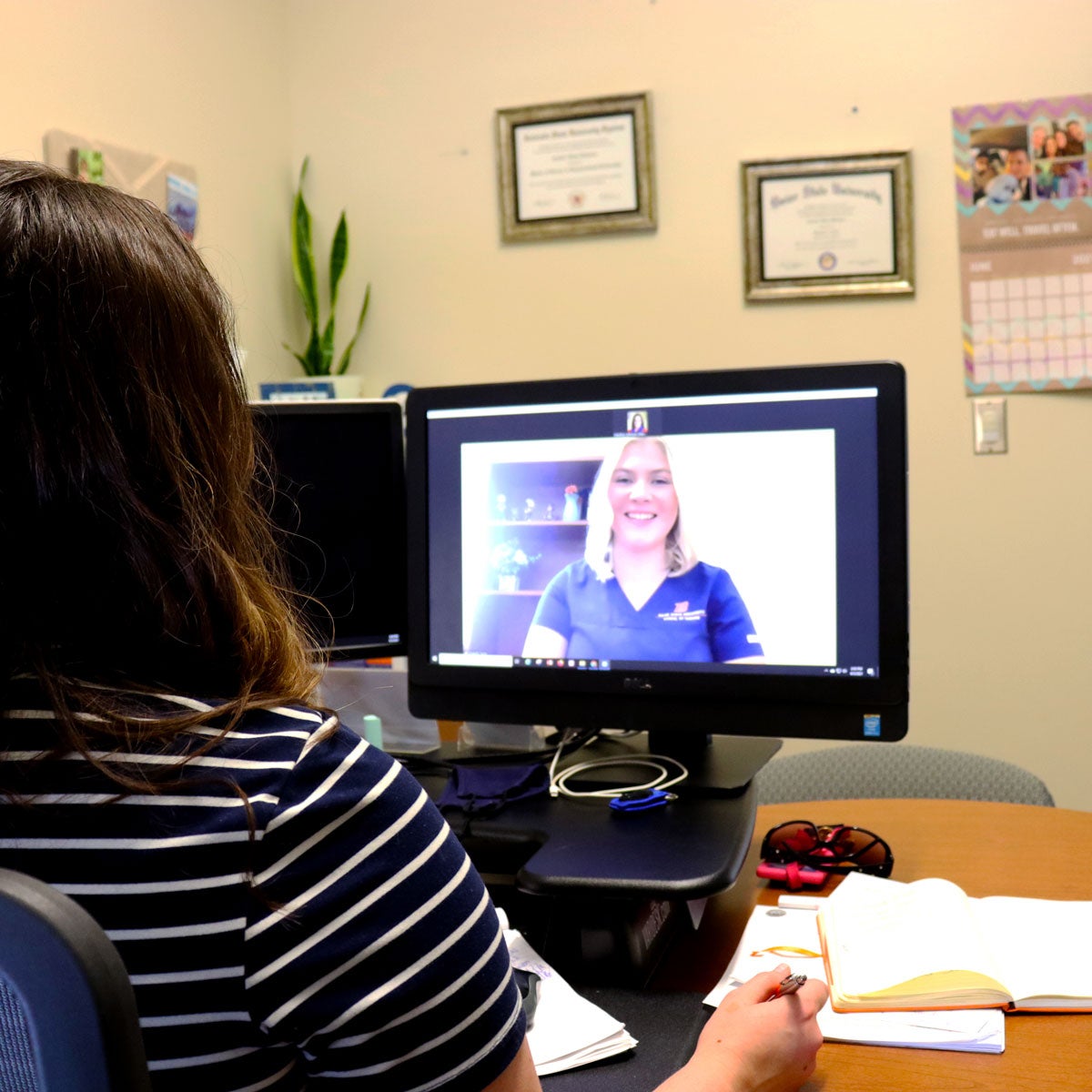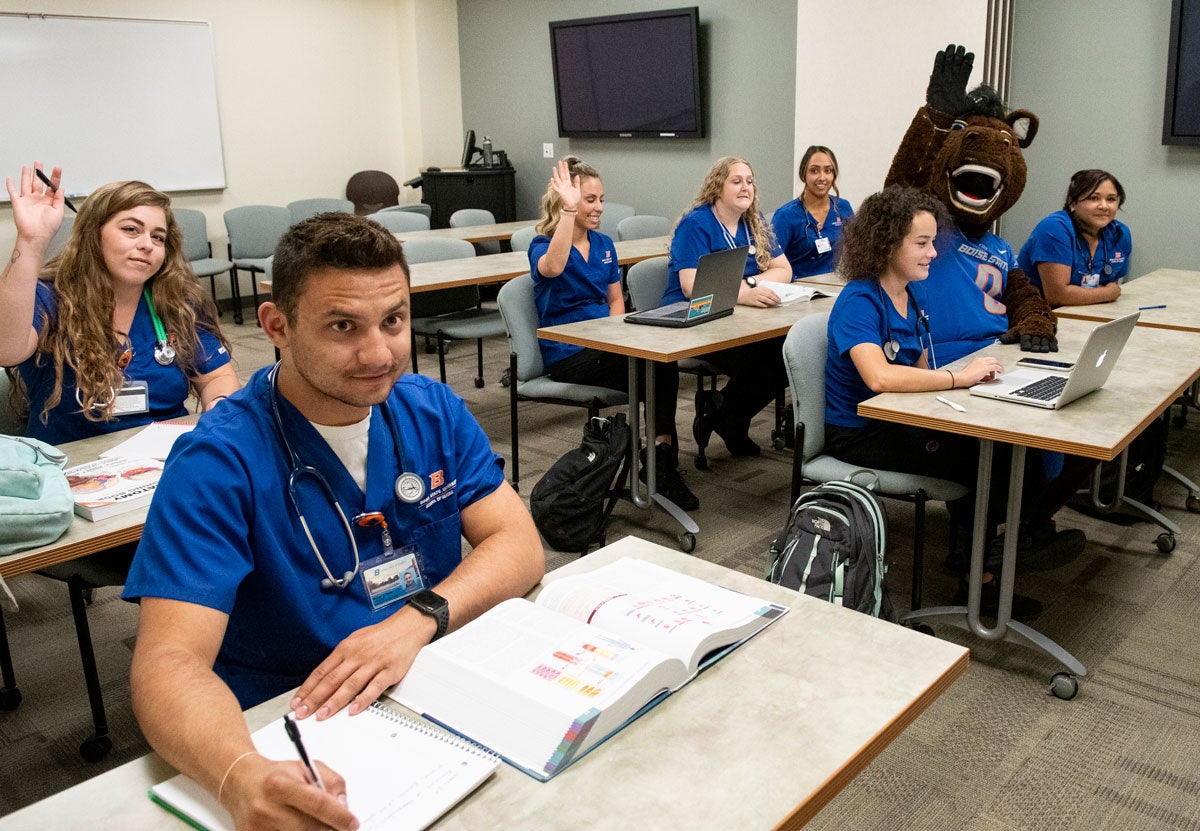The end of this semester marks one full year implementing a holistic admissions process for the on-campus bachelor’s degree program at the School of Nursing.
But what is a “holistic” process, and how does it impact students applying to the program?
What does it mean?
A holistic view of a prospective student takes into consideration their whole person, not just their grade point average (GPA) or book smarts, but also their character and skills. Practically speaking, it means applicants undergo an interview process in addition to a transcript review.
How does it work?
Many holistic admissions processes involve multiple stages that combine objective and subjective components.
Phase 1 at Boise State is the objective GPA qualification; students must meet a minimum requirement to be considered for the program. While GPA is not the sole determinant of acceptance, it does count for 40% of the admissions process.

This is an effort to set students up for success; nursing school is academically rigorous, and students need to know they’re going to be expected to work hard in the classroom.
Phase 2 is a subjective, multi-part interview stage. Students answer two written prompts to explain their motivation behind choosing the field of nursing and their interest in wider community healthcare issues.
Students also answer five questions about their skills and experiences through a video recording interview. Questions cover the topics of compassionate care, cultivating community, ethics, resiliency and professionalism. The School of Nursing chose these five components based on general characteristics they view necessary for all nurses to hold, as well as those that represent the identity of Boise State.
Why the switch?
Since nursing is a clinical profession, effective nurses require not only academic skills proven through exams, but also “soft skills” such as empathy, teachability and effective communication.
“You want your nurses to have all of these qualities,” said Candice Johnson, the School of Nursing senior business operations manager. “How do we know we’re getting that just because they have a high GPA?”
More and more nursing schools use some kind of multi-stage application process in a move away from strictly GPA-based admissions in order to assess these other kinds of skills.
The idea is that students who may not have a perfect 4.0 on their transcript may have other extraordinary qualities they can showcase in the interview process.
“I was excited for the process because before it was just numbers,” Johnson said. “By doing the interviews, [students] are able to come in and tell us why they would be the best candidates in the program.”
Why should students care?
Because the on-campus nursing program is so competitive, it’s common for students to retake prerequisites multiple times in order to earn the highest grade possible. Hopefully, by lowering the emphasis on GPA, the new process will decrease this practice and save students time and money.

“For students who are taking their classes five times in order to get that GPA, it should stop that redundancy,” Assistant Professor Sarah Llewellyn said. Llewellyn sat on the faculty committee evaluating applications this year.
Additionally, the new process allows students to get a feel for what a Boise State nursing education will be like before being admitted.
In classes, faculty often encourage students not to stress out about earning perfect grades. But Llewellyn said students often push back with statements like, “If I didn’t have a 4.0 I wouldn’t get into this program, and now you’re telling me not to worry about it.”
Now, the application process more accurately reflects the Boise State School of Nursing culture and values.
“We’re sending the message that that’s part of what we want, but not the only thing we care about,” Llewellyn said. “It matters if you’re learning the material, if you’re preparing for your profession, if you’re showing professionalism and ethics.”
This glimpse into the school’s values can help students make a better-informed decision about if the school is the right fit for them.
What does this mean for the future?
Although the school finished a full year using holistic admissions, it’s still too early to assess how incoming cohorts may be affected.
“We’re going to have to wait a while to truly see a difference, because a lot of students historically didn’t apply because they knew that our admission was only one way,” Llewellyn said. “As word gets out, hopefully a few semesters down the road, we’ll see more of the true impact.”
Incorporating this comprehensive admissions process is also one way the School of Nursing aligns itself with the university’s Student Engagement and Retention Plan (SERP). And while no process is perfect, this change is an effort to improve chances for the most well-rounded nurses to enter the field at a time when they are in high demand.
The school plans on collecting data and evaluating the effectiveness of the admissions process after the third complete cycle in spring 2023.
“The strength is being able to look at the whole student and give others an opportunity that’s beyond the GPA,” Johnson said. “My biggest advice to students has always been – and is – to look at this as a job interview, and just do your very best.”